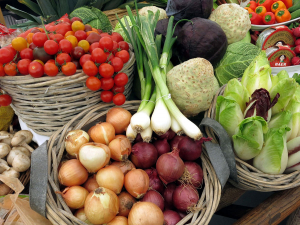Gene Technology Bill: Impact on Winegrowers and New Zealand Winegrowers' Response
Genetic modification has long been a topic of hot debate.
 The NSW Government says it will lift its moratorium on genetically modified food crops from 1 July 2021.
The NSW Government says it will lift its moratorium on genetically modified food crops from 1 July 2021.
The NSW Government has announced that a moratorium on genetically modified (GM) food crops will be lifted in the state from 1 July 2021, ending an 18-year ban.
The lifting of the ban on genetically modified crops will have immediate application for canola.
Director of the Sydney Institute of Agriculture, Professor Alex McBratney, said there are pros and cons to the decision to lift the ban on GM crops in NSW, which will align now with the rest of Australia.
“If we use genetic technology to improve the nutritional profile of crops, such as vitamin levels in rice, or by making crops more water-efficient, that will be a definite positive. We’ve already seen a dramatic drop in insecticide use in GM cotton grown in Australia.
“However, crops modified to be ‘Round-Up ready’ can encourage overuse of herbicides when we should be looking at alternatives, such as camera spraying and other precision agriculture methods.”
McBratney says it is important to remember that the only commercialisation of GM crops has been for canola and cotton.
“Genetically modified wheat hasn’t been commercialised anywhere in the world so far, so that offers a big challenge for our researchers.”
He says there are some markets, largely in Europe, that don’t want GM products – so it will be important to label GM products appropriately.
Meanwhile, Sydney Institute of Agriculture’s dean of science and soil scientist Professor Iain Young says the lifting of the moratorium on GM crops offers a host of opportunities, at a time when we have to secure our food production. “The lessons from Europe show us we must be proactive in dealing with public concerns and potential misconceptions.”
Fonterra’s impending exit from the Australian dairy industry is a major event but the story doesn’t change too much for farmers.
Expect greater collaboration between Massey University’s school of Agriculture and Environment and Ireland’s leading agriculture university, the University College of Dublin (UCD), in the future.
A partnership between Torere Macadamias Ltd and the Riddet Institute aims to unlock value from macadamia nuts while growing the next generation of Māori agribusiness researchers.
A new partnership between Dairy Women’s Network (DWN) and NZAgbiz aims to make evidence-based calf rearing practices accessible to all farm teams.
Despite some trying circumstances recently, the cherry season looks set to emerge on top of things.
Changed logos on shirts otherwise it will be business as usual when Fonterra’s consumer and related businesses are expected to change hands next month.

OPINION: Here w go: the election date is set for November 7 and the politicians are out of the gate…
OPINION: ECan data was released a few days ago showing Canterbury farmers have made “giant strides on environmental performance”.